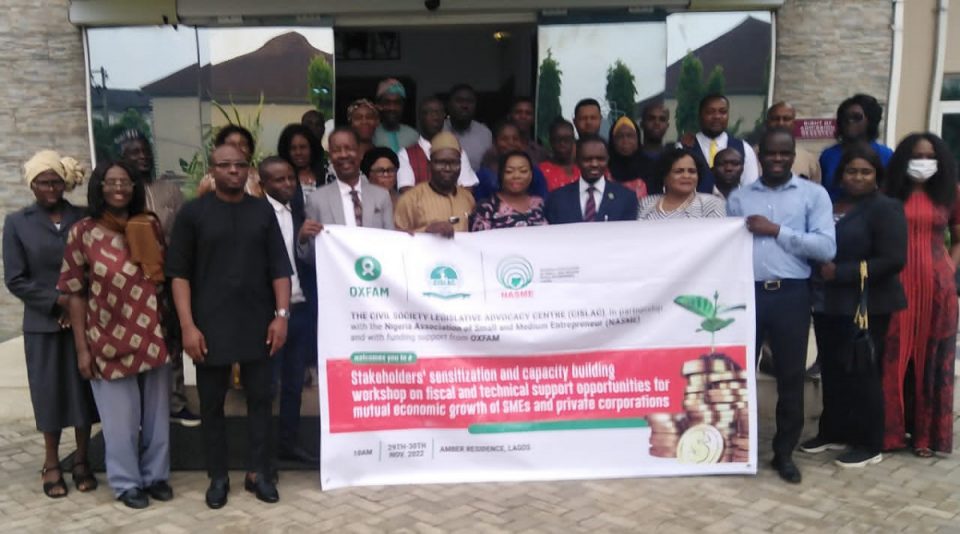Despite contributing over 50 percent of jobs in the country, Micro Small and Medium Enterprises (MSME) bemoan that increasing difficulty in accessing funds is hampering their operations, a huge financial gap in the sector.
This scenario is reported to have left a whooping ₦617.3 billion funding gap in the sector, a situation operators say is currently causing a shrinkage in the operations and overall growth of small businesse.
According to the Executive Director of Civil Society Legislative Advocacy Centre (CISLAC) Auwal Ibrahim a whooping sum of 0₦617.3 billion financing gap exist in the country ‘s Micro Small and Medium Enterprises (MSMEs).
Musa who was represented by the Program Manager, CISLAC, Mr. Chinedu Bassey, stated this at the opening ceremony of a two day Stakeholders capacity building and consultation workshop on fiscal support opportunities/processes for mutual economic growth of SMEs and private corporations on Tuesday in Lagos.
He said, “A 2020 MSME survey by PwC estimated the financing gap for Nigerian MSMEs to be about N617.3 billion annually (pre COVID 19 pandemic). This is in addition to other pressing issues plaguing the sector, which includes, multiple taxation and regulatory challenges.”
He disclosed that a 2022 report jointly released by SMEDAN, and the National Bureau of Statistics (NBS), MSMEs accounted for 96.7 percent of businesses, 87.9 percent of employment, and 49.7 percent of national GDP.
According to him, “About 17.4 million enterprises, SMEs account for about 50 percent of industrial jobs and nearly 90 percent of activities in the manufacturing sector, in terms of number of enterprises.
“There are at least, 39.6 million micro, small and medium enterprises (MSMEs) operated in Nigeria as of December 2020. This contrasts with over 41.5 million MSME businesses recorded by SMEDAN, as operating in the country, in 2018.”
He pointed out that the workshop specifically aims to identify challenges that limit access to finance for SMEs.
He added that it is an opportunity to inform civic advocacy for improved access to finance for small business growth/expansion; expressing that it will help sensitize and build capacity of SMEs on relevant statutory requirements, legal and policy frameworks.
“Financing institutions, alternative financing instruments and resources needed to secure funding; and strengthen platforms for SME/government interface for fiscal support and mutual growth opportunities.” He noted.
In her goodwill message, Mrs Gbemi Odunta, National Deputy President, Southern Region, NASME, stated that the program will afford stakeholders proffer solution to some of the challenges bedevilling SMEs.
In her own word,”Don’t undermine the power of SMEs, it is the engine that would propel Nigeria into the expected economic growth and development.”
Also speaking, the Mrs. Olakitan Wellington, National Secretary, Association of Nigerian Women Business Network (ANWBA) noted that there is a lot of financial support provided by the government for MSMEs, but could not be accessed due to difficulties in proper documentation.
Olakitan expressed that the workshop will go a long way in exposing SMEs on the right ways to access SMEs support funds for both the government and international organizations




